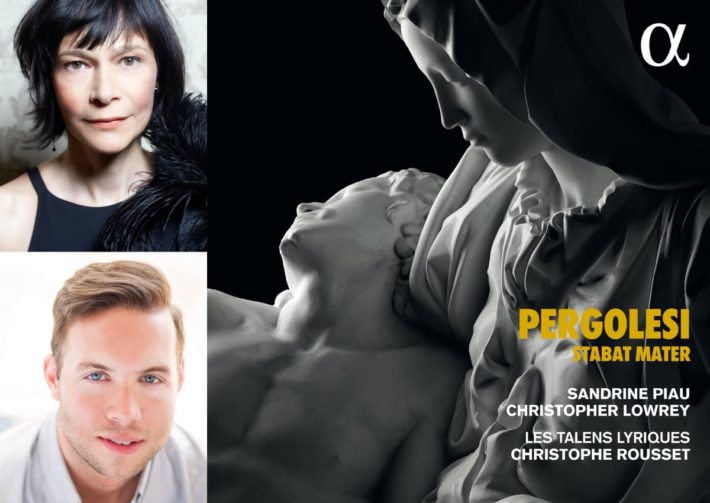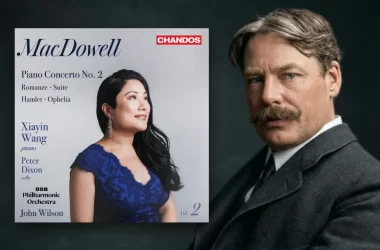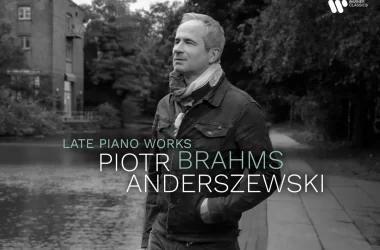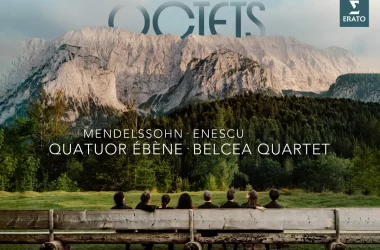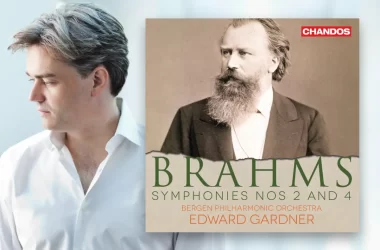Christopher Rousset and Les Talens Lyriques’ first recorded Pergolesi’s Stabat Mater twenty years ago, with Barbara Bonney and Andreas Scholl taking the vocal parts. Now they return to the work with soprano Sandrine Piau and contralto Christopher Lowrey.
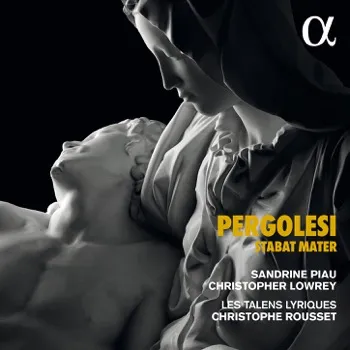
Rousset has not radically altered his interpretation of the piece, though there are subtle differences that infuse new colors. Rousset and the Talens Lyriques players feel more intimately connected with the emotional content of the music in this recording. The string playing is ravishing in the arias, the lyric and playful moments full of buoyancy (say the opening of track 4 on both albums) and the painful moments biting (track 10). In the duets, which follow less predictable trajectories than the arias, the playing is extremely sensitive to minute changes, giving the soloists a sturdy scaffolding on which to sing. A great example is track 3, full of tempo changes and harmonic shifts. Listen to how Rousset uses silence to give each phrase its proper space, or how the slightest softening of articulation in the strings (1’24”) colors the word “mater” (mother) with warmth. Pergolesi uses half-step dissonances to depict suffering throughout the work, and the ensemble seems to have fully embraced that spirit in this recording; no other version of the piece, including Hogwood’s and Harnoncourt’s, gives the dissonances such pride of place. The consistency with which they’re highlighted almost creates a leitmotif.
Piau and Lowrey also inhabit a very different sound world than did previous soloists Barbara Bonney and Andreas Scholl. Bonney’s voice is a classic lyric soprano, with a round tone and velvety vibrato, and Scholl occasionally struggles to match it, though he is impressive in his own right. Piau’s voice, on the other hand, is brighter, with cooler (though no less expressive) vibrato, which Lowrey’s Contralto more easily matches. In their duets, the chemistry is particularly powerful, for instance on the final 6/8 in track 5, where they sing with palpable drama, or in the opening track, where their voices intertwine effortlessly on the suspensions.
The album is rounded out by two obscure but delightful works by two of Pergolesi’s fellow Neapolitan composers, Nicola Porpora and Leonardo Leo. Porpora’s Salve Regina, sung by Piau, is an interesting contrast to Pergolesi’s own Salve Regina, the usual pairing with the Stabat Mater. Porpora’s music has an unmistakable calm and mellifluous quality, which poses plenty of challenges for Piau. She handles them with aplomb; her voice travels effortlessly in both horizontal and vertical directions, almost floating across melismas, and she easily integrates trills into the phrases. Her singing is reminiscent of Cecilia Bartoli’s recent take of some of Porpora’s music (“Farinelli”, reviewed here). Leo’s “Beatus vir qui timet”, only republished in 2007, has been recorded only once before as far as I can tell, and Lowrey’s take is by far the superior one. Lowrey sings with textual and emotional clarity, almost crystalline transparency, but his expressive vibrato and natural feel for rubato create a sophisticated final line. He, too, has remarkable facility with the trills and flourishes common in this music.
This album is an interesting embodiment of the continued success of early music in recent decades: Rousset’s previous recording was for Decca, whereas this one is for Alpha, a label founded only recently in 2005 to promote under-performed music and smaller ensembles. The inclusion of works by Porpora and Leo points to a renewed interest in Italian baroque (see also, for example, Les Cris de Paris’ album Passions, reviewed here). The recording quality on this album is also commensurate with recent, similar albums – clear vocals and strings, with a soft and slight resonance. Overall, a commendable project, and deserving of plenty of listening time.
Pergolesi – Stabat Mater
Porpora – Salve Regina (for soprano)
Leo – Beatus Vir Qui Timet (for Alto)
Sandrine Piau – Soprano
Christopher Lowrey – Contralto
Les Talens Lyriques
Christophe Rousset – Conductor
Alpha Classics, CD ALPHA 449


